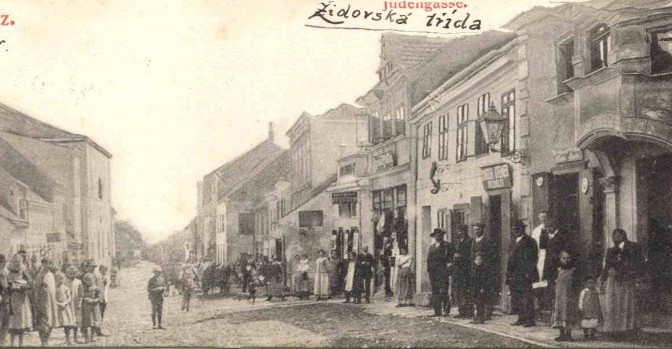A joint project of the Institute for Contemporary History, Czech Academy of Sciences and CEFRES in partnership with the Jewish Museum in Prague.
When & where: the colloquia are held in the library of CEFRES, Na Florenci 3, Prague 1, always at 5 p.m. Check on CEFRES calendar the next sessions.
Language: Czech and Slovak in Fall – English in Spring
Hosts: Kateřina Čapková & Michal Frankl
The colloquia are intended to provide a platform for academic discussion about the latest research on Jewish history especially of the last three centuries. Though primarily focused on the Jews of central and east central Europe, the colloquia also include topics related to the Jews of other regions. The colloquia will be further enriched by including topics not directly concerned with Jews, but enabling one to see Jewish history from other perspectives (for instance, the perspective of other ʻminoritiesʼ).
Despite our preference for the methods of historical research, the organizers welcome multidisciplinary approaches to the topics, including those of sociology, political science, religious studies, and art history.
Among the people leading the colloquia are scholars from institutions in the Czech Republic and abroad, senior scholars as well as PhD students.
Contacts: Kateřina Čapková (capkova@usd.cas.cz) & Michal Frankl (michal.frankl@gmail.com)


 My research explores the making of a ‘productivist’ middle-class and their battle for social legitimation, intellectual authority, and middle-class identity in the Habsburg Monarchy between the 1867 Ausgleich and the aftermath of the Great War. In this study I analyze who became engaged in the battle for social recognition, what their motivations (scientific, social, economic) were, and what themes and social issues they considered important in their professional and private endeavors. A special emphasis is put on the relation between the educational system, with its inherent role in the knowledge production of specialized disciplines, and the economic and social modernization of the Dualist Monarchy. Here, my approach focuses on how educational change (e.g. the rise of professional education) could be interpreted from the perspective of its social effects or even in terms of economic causes. My research also includes the analysis of various types of white-collar work in early urban capitalism, especially from the perspective of how the struggles around class, status, and power were represented and negotiated in the public sphere and in related scientific endeavors by our protagonists. In this vein, selected case studies deal with the practices of accounting, banking, insurance business, engineering, and transportation.
My research explores the making of a ‘productivist’ middle-class and their battle for social legitimation, intellectual authority, and middle-class identity in the Habsburg Monarchy between the 1867 Ausgleich and the aftermath of the Great War. In this study I analyze who became engaged in the battle for social recognition, what their motivations (scientific, social, economic) were, and what themes and social issues they considered important in their professional and private endeavors. A special emphasis is put on the relation between the educational system, with its inherent role in the knowledge production of specialized disciplines, and the economic and social modernization of the Dualist Monarchy. Here, my approach focuses on how educational change (e.g. the rise of professional education) could be interpreted from the perspective of its social effects or even in terms of economic causes. My research also includes the analysis of various types of white-collar work in early urban capitalism, especially from the perspective of how the struggles around class, status, and power were represented and negotiated in the public sphere and in related scientific endeavors by our protagonists. In this vein, selected case studies deal with the practices of accounting, banking, insurance business, engineering, and transportation.